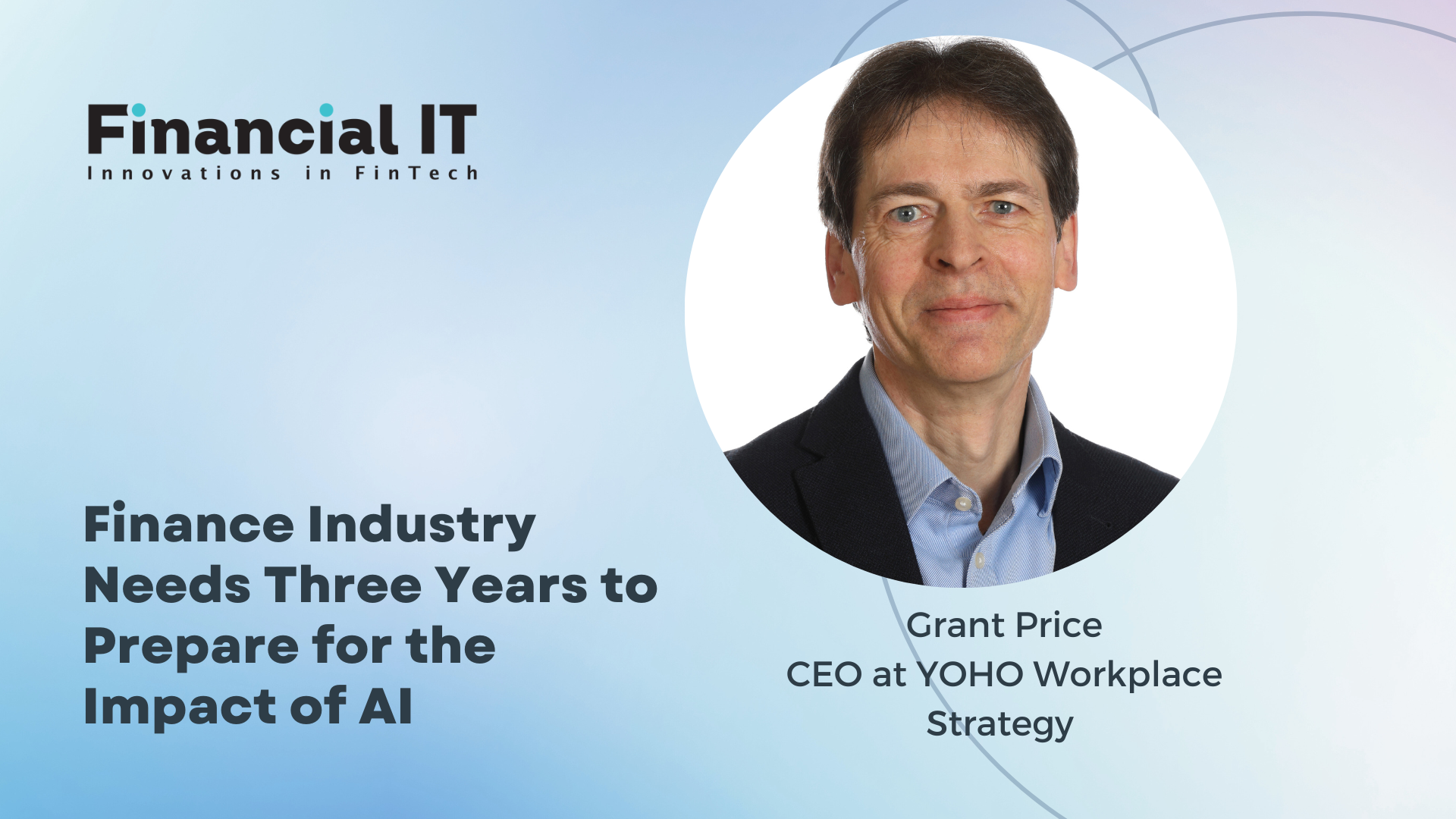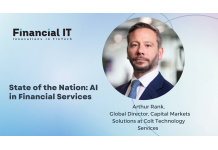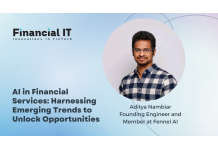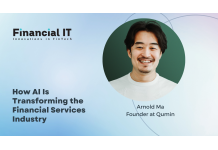Finance Industry Needs Three Years to Prepare for the Impact of AI

- Grant Price, CEO at YOHO Workplace Strategy
- 06.07.2023 02:45 pm #ai #financialservices
A new survey of UK human resources (HR) managers and directors working in the finance sector shows they will need three years to be ready for the impact of AI on the workplace – yet all of them believe artificial intelligence (AI) will deliver benefits.
In total, nearly half (47%) said it would take a minimum of three years before they were prepared for the impact of AI on their roles, and just over one in ten (13%) said they would be fully prepared for the potential impact of AI on the workforce within the year.
To integrate AI, 38% were investing in their tech teams, while 32% were already trialling AI in their businesses.
The survey commissioned by research-driven consultancy YOHO Workplace Strategy also asked the respondents which jobs would be most impacted by AI.
HR directors and managers working in the finance industry put IT and technology jobs (30%) at the top of the list, followed by finance and accounting (25%), customer services and support (21%) and sales and marketing (17%).
Grant Price, CEO at YOHO Workplace Strategy, said: “AI has the potential to be the biggest disruptor of the way the finance industry works since the industrial revolution.
“Our research shows businesses don’t think they will be prepared for the seismic changes AI will have until three years’ time.
“But all sources indicate AI will have changed radically in that time and businesses need to prepare for this now.”
Weighing up the pros and cons
The survey also revealed the top five concerns about AI in the workplace, which include technical issues (36%), bias and discrimination (34%), dependence on technology (32%), security and privacy concerns (32%) and job displacement (32%).
The types of benefits expected by respondents were automation of routine or repetitive tasks (36%), cost savings and reduction in labour costs (36%), new insights and data-driven opportunities (36%), improved safety and risk management (34%), improved decision-making and accuracy (30%) and increased productivity and efficiency (30%).
Varying responses from different age groups were also revealed. The biggest concerns among 18 to 34-year-old senior executives were AI’s potential to reduce human interaction and increase company dependence on technology (36%). Whereas amongst those aged 35 to 55 and over, the biggest fear was over security and privacy (29%).
The vast majority (77%) of HR execs surveyed felt they were either aware or fully aware of the potential impact of AI on the jobs market, with more than a third (30%) anticipating more benefits than drawbacks.
Keeping the ‘human’ in human resources
Grant Price, CEO at YOHO Workplace Strategy, added: “AI will displace jobs rapidly in finance and while it will create new jobs, this is unlikely to be at the same rate as the jobs it displaces. The winners will be those who pivot to leverage its capabilities the quickest, as AI enables the translation of data into actionable insight at speed.
“Having been born into a world dominated by technology, Gen Z are likely to adapt more quickly, and find it easier to harness AI’s capabilities as the technology continues to evolve.
“As pressure grows to allow AI to start recommending changes to our business strategy in the finance industry – the question is whether we will find ways to retain sufficient control before we grant AI this role.”
Vikki Sly, chief people officer at financial services company Coincover, commented: “Regardless of how clever technology is, and AI certainly has a massive role to play, I believe when it comes to enhancing what happens in the workplace and improving our roles, it’s not going to bring the level of soft skills and critical skills that are required and that only human brains can provide. There are critical capabilities that AI isn’t able to do right now, but there are certainly areas in which AI will excel and where humans won’t be able to perform nearly as well.
“Empathy, inclusivity, communication, collaboration - AI is never going to be ‘human’ in that way. If you think about data and analytics, they’re central to our lives and ubiquitous. AI’s strength is in gathering and making sense of it all. But it can’t make the final judgement call – whether to hire, promote, evaluate performance – people are still required to do that.”
























